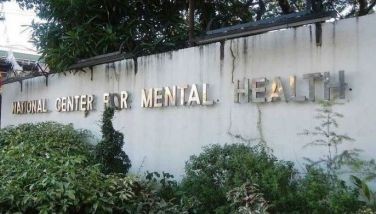Drone use guidelines for agriculture out
CEBU, Philippines — The Fertilizer and Pesticide Authority (FPA) has taken the lead in developing protocols, standards, and monitoring guidelines for drone use in agriculture to ensure its safe implementation in farming.
This initiative is a sub-component of the Drones4Rice project under the Department of Agriculture's National Rice Program (DA NRP).
The Drones4Rice Project aims to reduce production costs, decrease the reliance on manual labor, and attract younger generations to farming. It is also expected to accelerate the digital transformation of the rice industry, which is a key strategy of the DA’s Masagana Rice Industry Development Program (2023-2028).
The project also responds to the need to better understand the socioeconomic and behavioral factors influencing the adoption of disruptive technologies, while highlighting the additional benefits of precision agriculture (PA) for improved sustainability and reduced carbon footprint in rice production.
Dir. Glenn DC. Estrada, program director for the Digitalization and Value Chain Development under the Masagana Rice Industry Development Program of DA, explained that the initiative seeks to empower rice farmers by providing subsidized access to drone services.
Estrada emphasized that beneficiaries will receive vouchers worth P2,000 per hectare to cover the full range of drone-assisted farming operations, including pre-flight planning, crop establishment, nutrient management, and pest and disease control.
“The NRP has allocated about 300 million pesos to support the commercial application of drones. It primarily serves organized groups such as rice clusters, Irrigators’ Associations (IAs), Farmers’ Cooperatives and Associations (FCAs), Small Water Irrigation System Associations (SWISAs), and Agrarian Reform Beneficiaries Organizations (ARBOs),” Dir. Estrada noted.
The development of guidelines for drone use in agriculture aims to standardize protocols for drone applications of seeds, fertilizers, and pesticides in rice production across the Philippines.
FPA Executive Director Julieta Lansangan highlighted the agency’s role in the Drones4Rice project, stressing the importance of developing protocols and regulating drone use in agriculture.
“Why is regulation necessary? Drones could be used for terrorist activities, so those using drones for agricultural purposes need to be regulated,” Dir. Lansangan explained.
She added that regulating drone operations ensures the safety of users, consumers, and the environment, while ensuring the proper application of agricultural inputs.
“With drone-assisted pesticide spraying, regulation is needed to assess the product's effectiveness. It also ensures the safety of the user, the applicator, the community, the crops, consumers, and the environment. As we move forward, we continue to develop new application technologies,” Lansangan added.
Even though regulations for drone use are now in place, the FPA noted that additional work is needed to reduce regulatory constraints, standardize operations, develop digital precision agriculture (PA) tools, and scale up the adoption of these technologies.
As part of these commitments, the agency issued FPA Memorandum Circular No. 25, or the "Enhanced Rules and Regulations on Pesticide Application Using Remotely Piloted Aircraft Systems (RPAS)" series of 2024, on October 1, 2024.
The memorandum is based on the principle of promoting the advancement and adoption of drone technology while safeguarding public health and the environment from the risks associated with pesticide use.
The guidelines will be adhered to by drone controllers, operators, technicians, service providers, pesticide companies, and pesticide end-users. This includes, but is not limited to, private and public research institutions, state universities and colleges (SUCs), other government agencies, and local government units involved in drone spraying for pest and disease control in agriculture.
To disseminate these guidelines to farmers and relevant stakeholders, the FPA will conduct an Information Caravan in strategic rice cluster locations established by the NRP nationwide. This caravan will orient farmers and other stakeholders on the guidelines. —/ATO (FREEMAN)
- Latest






















